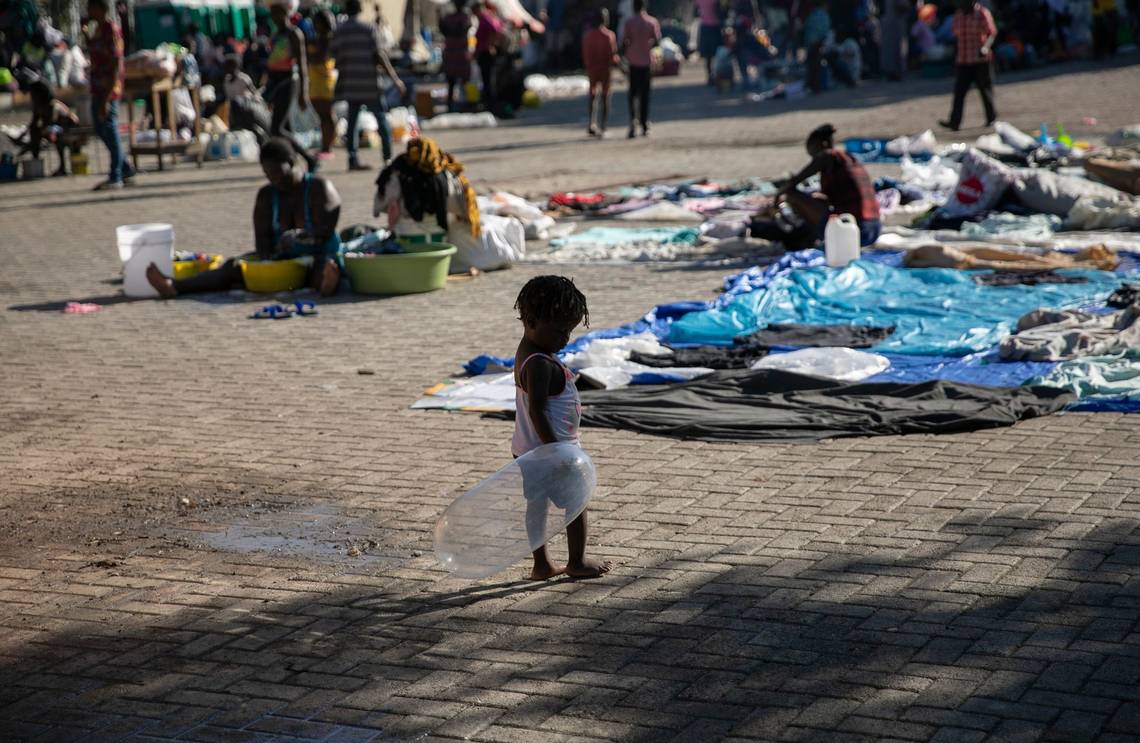
A U.S. plan for an international force to intercede in Haiti’s war on heavily armed criminal gangs is losing momentum over a month after the Biden administration proposed a rapid action deployment at the United Nations.
One U.S. official involved in the discussions said a U.S. resolution at the U.N. Security Council endorsing the force was unlikely to move toward a vote during the holiday season. A second U.S. official said that the plan is not dead, but that the formation of such an ambitious military mission would take time.
Washington has struggled to execute the plan since it was first introduced in October, when gangs were blockading the country’s main fuel terminal and seaports, controlling its critical roadways and terrorizing the capital of Port-au-Prince.
The two-month blockade finally ended earlier this month when a powerful gang leader sanctioned by the United Nations declared that distributions can resume. But it further wreaked havoc on Haiti, deepening the country’s humanitarian crisis as Haitians struggled to obtain fuel, food or drinking water while dealing with a new cholera outbreak.
Haiti’s government and the U.N. secretary general called for a multinational rapid reaction force — formed outside of the United Nations but with Security Council support — to push back against the gangs and create a humanitarian corridor.
Yet the United States proposed that another, unidentified country should lead the mission, declining to volunteer itself. Washington also proposed sanctions, penning a resolution targeting gang leaders and their patrons by the U.N. Security Council.
READ MORE: Canada sanctions former Haiti President Michel Martelly, two former prime ministers
Canada appeared most likely to lead the effort. Secretary of State Antony Blinken visited Ottawa at the end of October and advocated that Canada play a prominent role. But with some Haitians in Canada and the United States vocally criticizing the prospects of foreign boots on Haitian soil, some Canadian officials seem to be hesitant.
On Sunday, while attending the Francophonie summit in Tunisia where his government announced sanctions against three high-profile Haitian politicians, Canadian Prime Minister Justin Trudeau threw cold water on the prospect of fast military action.
“It’s not enough for Haiti’s government to ask for it,” Trudeau said. “There needs to be a consensus across political parties in Haiti before we can move forward on more significant steps.”
A difficult task
That is a tall order in a country where divisions run deep, and the issue of foreign military assistance has been politicized. Some view the Haitian government request as a way to shore up the interim government of Prime Minister Ariel Henry, even while quietly recognizing that the violence and kidnappings are beyond the capacity of the 12,000-member Haitian police force.
There are over 200 political parties in Haiti. More than a year and a half after the assassination of the country’s president, Jovenel Moïse, the interim government and a coalition made up of civil society and political parties known as the Montana Accord have not been able to reach an agreement on governing the crisis-ridden country.
In its latest communique, the Montana Accord criticized a government decision that raised the price of fuel in order to remove $400 million in fuel subsidies, and accused Henry of asking “foreign armed forces to invade the entire territory of the country.”
“The current prime minister has started a dialogue with a group of political actors, but it remains within the framework of a one-headed power system and with himself as the only supreme leader with the right to do and undo without any balance or control,” the Nov. 18 communique read, adding that the Montana Accord is not involved in the talks, which include some leaders in the private sector.
A U.S. National Security Council spokesperson declined to comment on the timeline of the proposed military resolution.
“Conversations are ongoing with partners about establishing the non-U.N. mission, and we continue to coordinate with our international partners to support the people of Haiti and address the security and humanitarian situation in the country,” the NSC spokesperson said.
Human rights observers in Haiti warned that, while fuel and food are once more flowing out of the country’s ports, the crisis is far from over. Gangs are increasingly becoming autonomous in Haiti, no longer depending on links with politicians or members of the private sector to direct them. And they are expanding territory by building coalitions across neighborhoods.
Unabated kidnappings continue, while armed groups continue to expand into new neighborhoods in and outside of the capital, burning down homes and raping and killing residents as they seize control.




